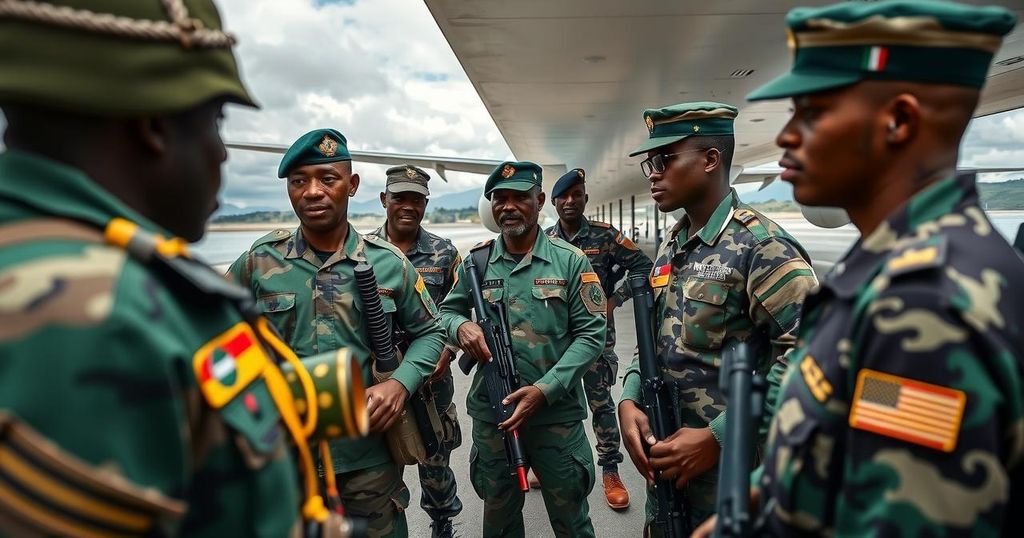Approximately 200 Russian military instructors have been sent to Equatorial Guinea to enhance the security of President Teodoro Obiang Nguema Mbasogo. Their primary mission is to train elite security forces while ensuring the safety of the president’s son, Teodoro Nguema Obiang Mangue, regarded as a potential successor. This deployment is emblematic of Russia’s intention to strengthen its influence in Central and West Africa.
The Russian government has dispatched approximately 200 military instructors to Equatorial Guinea, with the primary objective of bolstering the security of President Teodoro Obiang Nguema Mbasogo. These instructors will focus on training elite security units responsible for the protection of the president. Additionally, the Russian contingent may include military personnel from Belarus and elements of Russian airborne forces, particularly in light of concerns surrounding the potential succession of President Mbasogo’s son, Teodoro Nguema Obiang Mangue, who is perceived as a wealthy and likely successor. This initiative is viewed by analysts as part of Russia’s broader strategy to expand its influence across Central and West Africa, specifically within Equatorial Guinea. The presence of Russian mercenaries in the region, which includes support for various military regimes and efforts targeting insurgent movements, exemplifies this strategy. President Mbasogo has maintained power in Equatorial Guinea since 1979, following a successful coup. The engagement of Russian military instructors appears to be a calculated move to secure the regime’s stability amid regional challenges.
The political landscape in Equatorial Guinea has been defined by President Teodoro Obiang Nguema Mbasogo’s lengthy rule, which has lasted over four decades. His administration has faced various political threats and social unrest, prompting a reliance on external military support. The decision to bring Russian military instructors into the fold can be seen within the context of broader geopolitical interests, as nations like Russia seek to reinforce relationships with African states. This maneuver not only secures political allies for Russia but also serves to maintain stability in regions where Russian influence is expanding.
The relocation of Russian military instructors to Equatorial Guinea underscores the Kremlin’s ongoing strategy to consolidate power and influence in Africa. By ensuring the security of the Obiang regime, Russia aims to reinforce its presence in the region while potentially setting the stage for future political developments involving the president’s son. These actions reflect both regional security dynamics and Russia’s goal of countering Western influence in Africa.
Original Source: 112.ua






